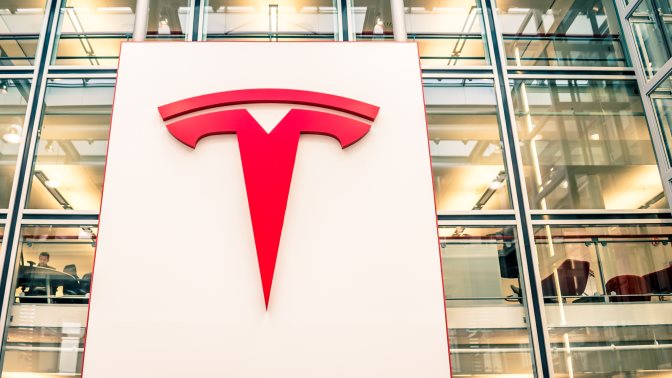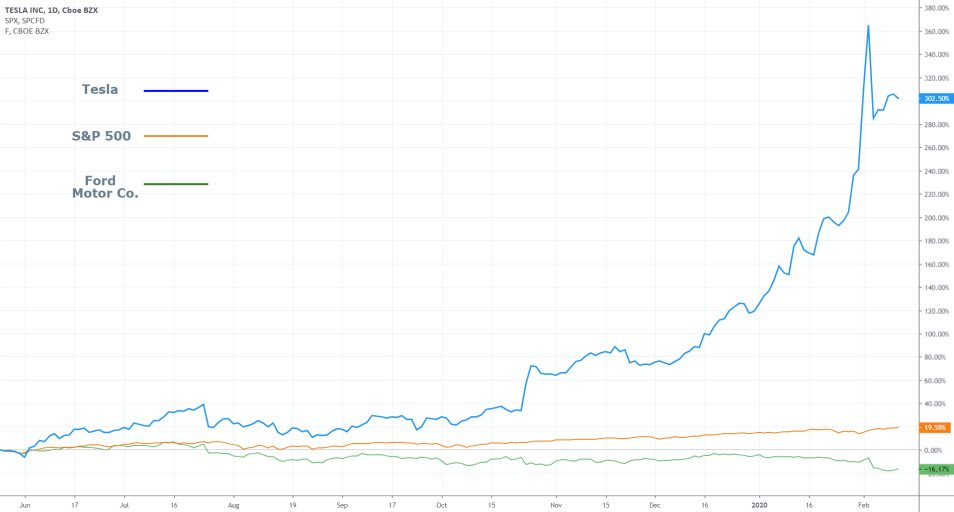
It is a well-known fact that Elon Musk, an ambitious genius-entrepreneur and philanthropist, wants his SpaceX to be the first private company to succeed in sending a manned mission to Mars. The sometimes eccentric CEO has shown over the years his aptitude for having far-reaching dreams. However, for the time being, it is the earthly endeavours of his other prominent company - Tesla - that have achieved what some might deem a cosmic success.
Tesla reported its quarterly earnings for Q4 of 2019 on the 29th of January and the results were overwhelmingly positive. Better-than-expected earnings per share of $2.14 adjusted, which is comparatively bigger than the $1.72 consensus forecasts. Its revenue was reported at $7.38 billion vs $7.02 billion expected. What really surprised investors, however, was the margin of improvement that was observed in the company’s key metric – the number of vehicle orders.
In its earnings statement, Tesla announced that it had made 112 000 deliveries during the quarter ending the 31st of December 2019, which is an all-time record for the car manufacturer. These across the board solid results have had a powerful impact on Tesla's share price since the release of the earnings report, with the stock rallying nearly 30 per cent in the span of fewer than two weeks.
What is even more noteworthy is the fact that Tesla was able to bring about structural changes to the car manufacturing industry, which are bound to have profound and long-lasting consequences. It has already transformed the market by boosting the demand for electric and virtually 'green' vehicles in the US and elsewhere. While it is not yet clear whether this new trend in consumers’ demand would eventually make cars with diesel engines a thing of the past, Tesla’s unquestioned contribution to the industry is the creation of this new niche. The market for electric automobiles has an excellent opportunity to continue growing in the foreseeable future as the demand for green energy becomes increasingly more prevalent.
A testimony to Tesla’s remarkable stretch is the fact that on the outset of 2020 it became the world’s top automaker performer in terms of total growth, sales growth and long-term shareholder value. Tesla shows no indications of slowing down, and the current trend is expected to continue developing well-into 2020 even with the looming controversy over the new Cybertruck.
“within a month Tesla received 200,000 preorders for the new vehicle. Compare that to the Ford-150, the world’s best-selling car in 2018, which sold just over 1 million vehicles that year.”
All of these metrics are an affirmation of the high consumer interest that supports Tesla’s growth, yet, a case can be made that investors’ interest is even bigger. The share price of the company surged with almost 100 per cent in the last two months and a half alone, which illustrates investors’ thrust in Tesla’s intrinsic value. They believe that the record-breaking performance that was observed during the last few earnings reports is only the beginning, and that future growth is going to be comparatively more substantial.

The above chart demonstrates the marked surge of Tesla's share price (in blue) compared to the S&P 500 (in orange) and finally Ford Motor Co. (in green) over the aforementioned period.
Overall, the future looks quite bright for the company bearing the name of the man whose scientific contributions spark just as bright today, even more than half a century after his passing. All the stars seem to be aligned for Tesla at the present moment, and it appears to be making progress equally well in all aspects.
Nevertheless, both Elon Musk and Tesla’s shareholders shouldn’t get ahead of themselves too quickly. There are hidden dangers for the car manufacturer.
Apart from his vision, Elon Musk is also known for his impulsive nature, especially when he is twitting. For instance, his sudden claim, that he was considering taking Tesla private, from early August 2018 wiped out nearly 15 per cent from the company’s stock in less than a week.
Am considering taking Tesla private at $420. Funding secured.
— Elon Musk (@elonmusk) August 7, 2018
This unpredictable trait in his character could cause similar sudden selloffs in the future as well, especially given the heightened volatility that is currently felt in the company's price action. Tesla's shares have become especially responsive to even subtle changes in the market sentiment, and such a dramatic claim by the company's own CEO could even result in a momentary flash crash given the listed conditions on the market. The threat here can be summarized by the popular saying – "What goes up, must come down" – which is especially relevant at times when a particular financial asset's price has risen considerably over a previous period.
Another potential harm to the stock price could be caused in the long-term by the spread of the deadly coronavirus in China, which is where Tesla has allocated most of its manufacturing capabilities. The Giga factory in Shanghai is producing all of the new models, especially Model 3 and Model Y, which are of crucial importance for the company's future sales. That is why any distortions to the production process that can be caused by the threat of the coronavirus's spread are likely to have a negative impact on Tesla's performance and thereby on its share price.
The Giga factory's production was already impeded once this year, right at the time of the virus' outbreak. This happened due to the efforts of the Chinese's government to curb the spread of the epidemic by imposing restrictions on travel and banning operations in key industrial areas. Even though work was resumed this Monday, the looming threat from the coronavirus's continued spread could necessitate the imposition of even more drastic countermeasures in the future. This is especially true if the epidemic becomes much more disastrous. This, in turn, would likely be much more impactful on Tesla's production capabilities and cause new and dangerous headwinds for the company in the long-term, which would likely lessen its growth and could even prompt a momentary selloff.




















